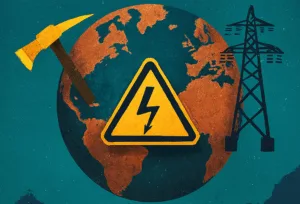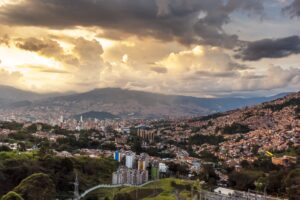We are a fortunate generation in the sense that we were born in an era of unprecedented technological advancement—an age shaped by scientists, inventors, and engineers who have created tools and technologies that make today’s lifestyle possible, and with a higher quality of life that has, among other things, helped extend our life expectancy.
When it comes to energy, many of us enjoy the comfort of coming home and turning on the lights, firing up the stove (gas or electric), a heater, air conditioner, or fan. We may also have a vehicle powered by fossil fuels (gasoline, diesel, natural gas) or by electricity from a power outlet.
The truth is, we enjoy intangible benefits we often take for granted. That’s why I was so struck by recent images from Venezuela—people returning to firewood, makeshift ovens, long lines for gas canisters (or bombonas, as they’re called there), and a surrender to regression. These are images of energy poverty, a growing crisis in that country.
It’s deeply saddening that Venezuela—one of the top 10 countries with the largest gas reserves—faces this escalating problem. It makes me ask: Why aren’t we talking more about energy poverty and the urgent need to address an issue that threatens health, well-being, and development?
Although there’s no single definition, I’ll use one that describes energy poverty as the inability of households to meet their domestic energy needs, which is a vital aspect of sustainable development. In this context, energy poverty involves lack of access to clean cooking alternatives and electricity.
According to Sustainable Energy for All (SEforALL), 2.6 billion people worldwide lack access to clean cooking solutions—that’s nearly the combined population of India and China. This is one of the biggest human development challenges we face globally.
Relying on biomass (like firewood) comes at a steep cost. The International Energy Agency (IEA) reports that poor air quality caused by such practices leads to more deaths annually than malaria or tuberculosis. That’s why it’s so critical not to neglect the conversation around energy poverty.
Fatih Birol, Executive Director of the IEA, once noted that energy security and climate change have been widely addressed as sector challenges, while energy poverty—despite being vital to social development—has received far less attention.
In countries committed to social development and environmental protection, ensuring access to modern energy for the general population must be a policy priority. And not just for social reasons, but also for its environmental implications.
In Colombia, where deforestation is the country’s main environmental issue, it’s essential that this problem be addressed, and that energy policy be designed in a way that prevents it from worsening. I close with an image in my mind: a man pushing a cart full of firewood freshly cut from a forest—and I imagine that image multiplied by millions.
Carolina Rojas Gómez
Student, Executive Master of Management in Energy
BI Norwegian Business School


